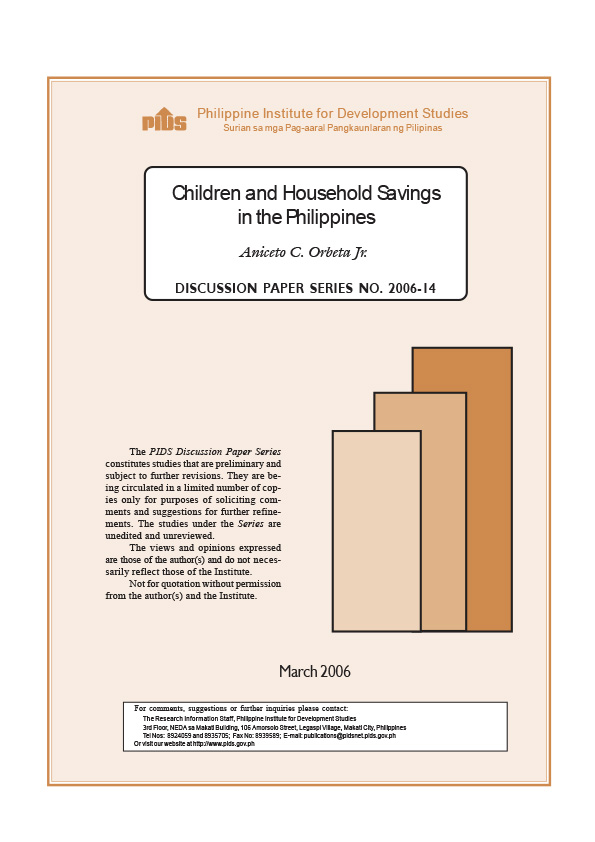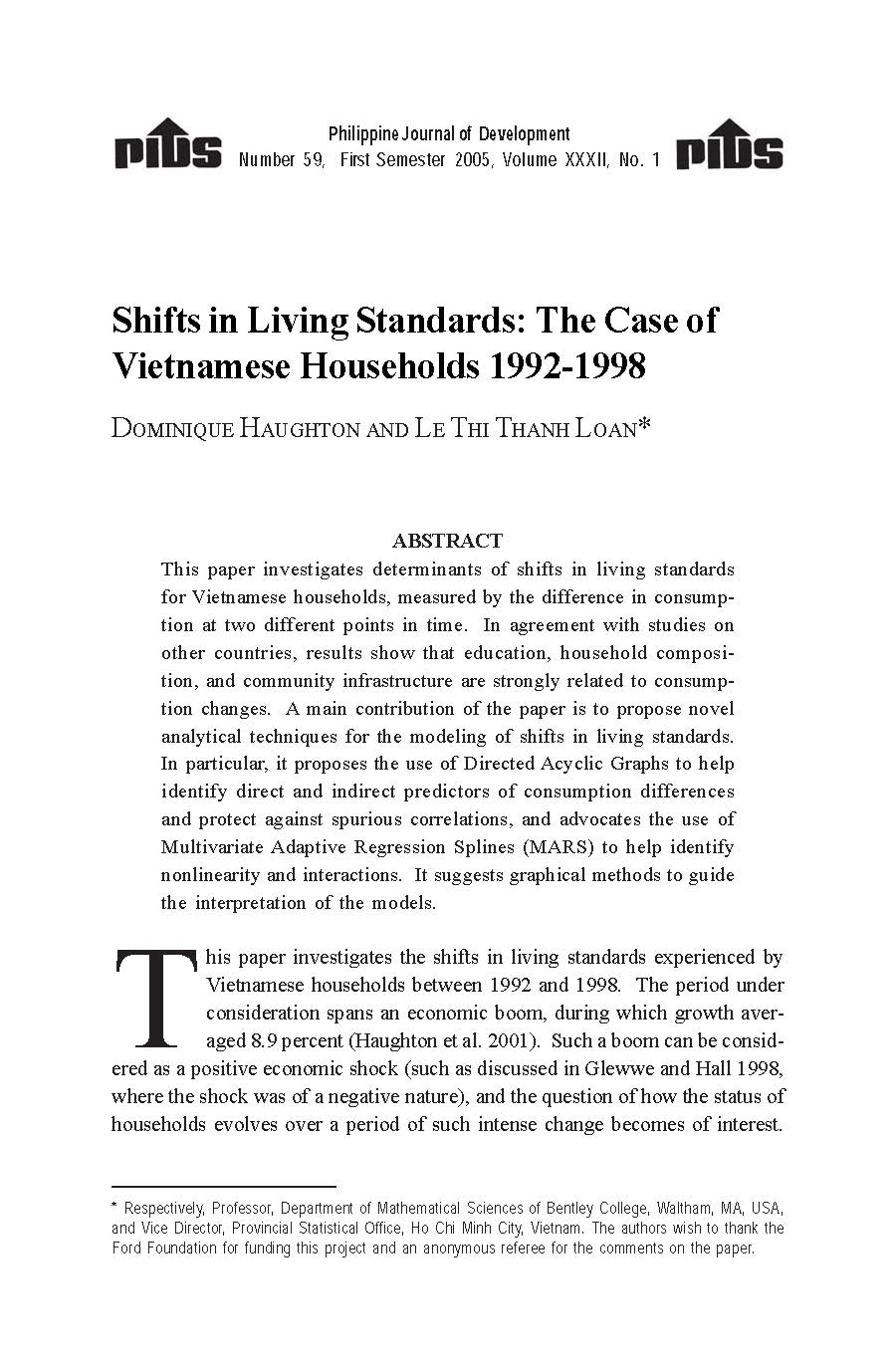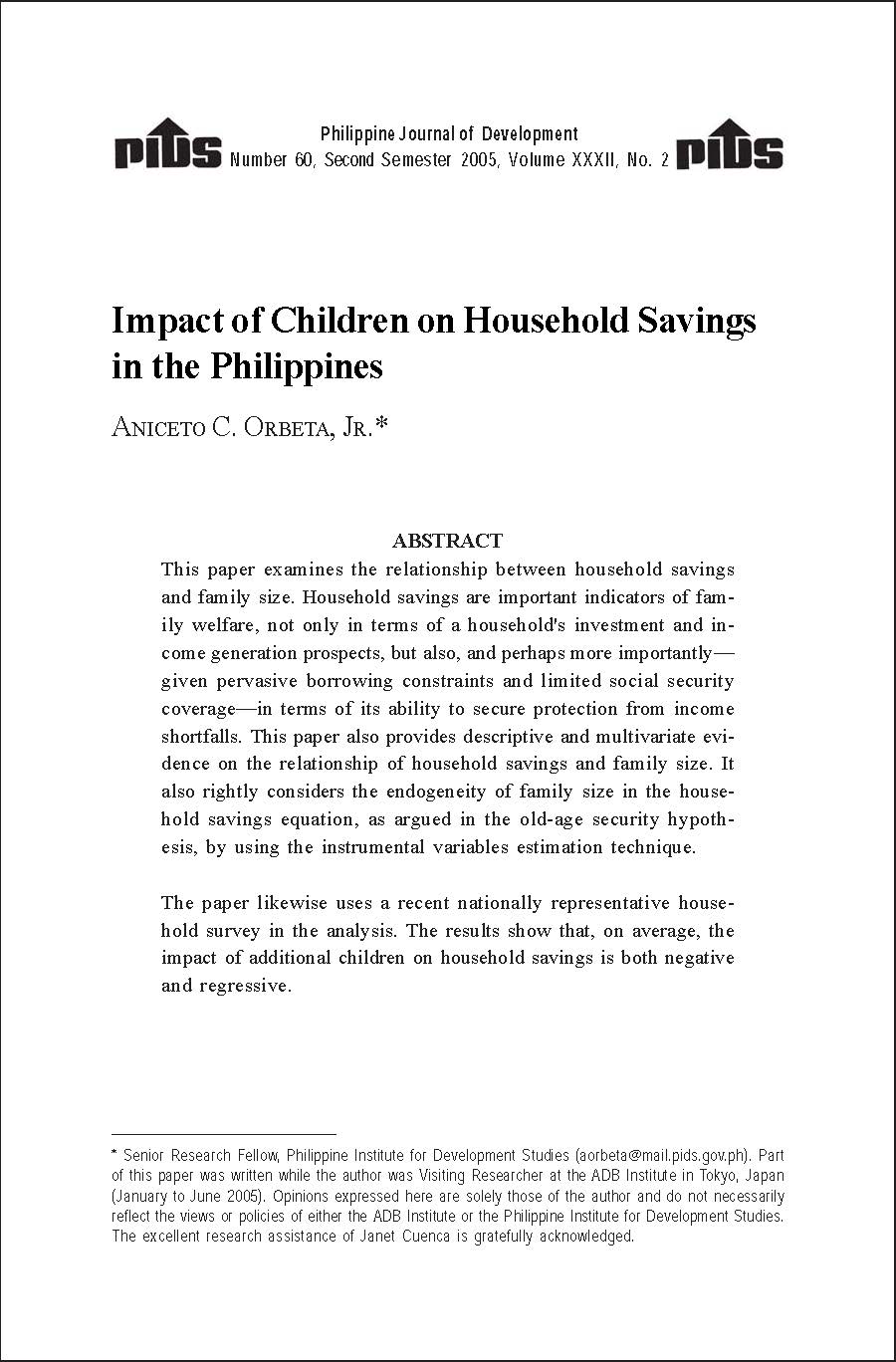This paper explores whether or not the saving behavior of Filipino households fits the life-cycle hypothesis. Using pseudo-panels, which are constructed from the public use data files of the Family Income and Expenditures Survey of 1988 to 2000, it shows that consumption rises with the age of the household head and that the consumption profile has been rising for younger cohorts. The regressions indicate that the cohort-independent age effects on consumption simply track those on income across all ages, suggesting that Filipino households do not behave as the life-cycle hypothesis prescribes, possibly because they are liquidity constrained or impatient.
Citations
This publication has been cited 2 times
- Racelis , Rachel and J.M. Ian Salas. 2008. Have lifecycle consumption and income patterns in the Philippines changed between 1994 and 2002?. Development Economics Working Papers 22683. East Asian Bureau of Economic Research.
- Salas, J.M. Ian and Rachel Racelis. 2008. Have lifecycle consumption and income patterns in the Philippines changed between 1994 and 2002?. Discussion Papers DP 2008-11. Philippine Institute for Development Studies.













